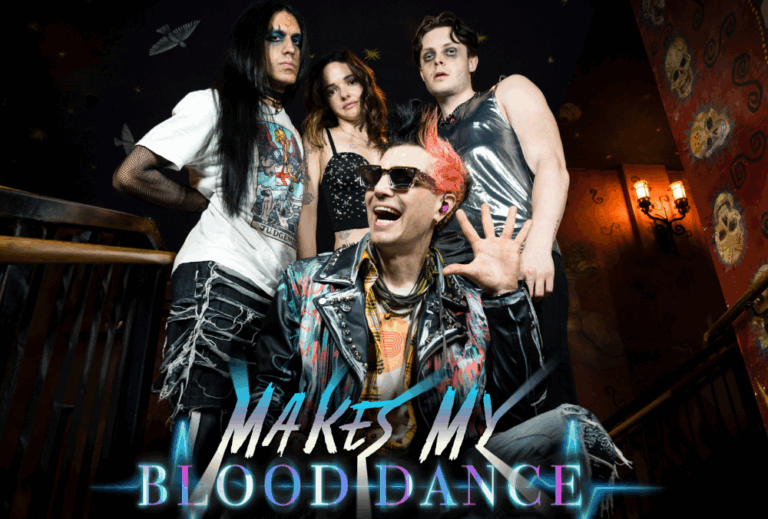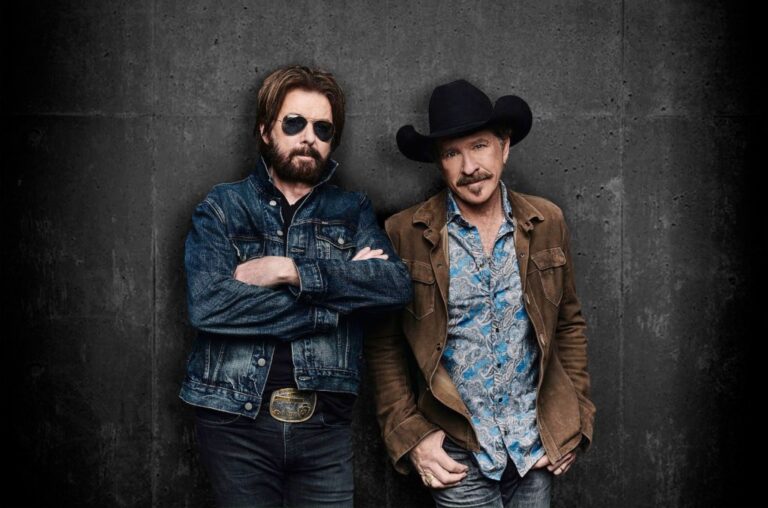The RX is Uproxx Music’s stamp of approval for the best albums, songs, and music stories throughout the year. Inclusion in this category is the highest distinction we can bestow, and signals the most important music being released throughout the year. The RX is the music you need, right now.
Van Buren Records is loudly and proudly a product of Brockton, Massachusetts. The rap collective boasts a roster of thirteen creatives with impressive talents that include rapping, producing, and fashion designing. Luke Bars, Meech, Felix!, Jiles, Saint Lyor, Ricky Felix, Andrew Regis, Kiron, RLouie, Invada, and Shelby have all contributed — through both individual and collective work — to what makes Van Buren Records such an enthralling unit.
The individual members of Van Buren Records have been releasing music for the better part of the past half-decade. However, it wasn’t until last year that they finally united for their official debut album Bad For Press. The 13-track project was, and still remains, a fine display of collaboration, balance, camaraderie, an artistic vision, and [TK]. While some thought that it would be some time before the group offered another body of work, Van Buren Records made a quick return with their second album DSM last month.
An acronym for Dover Street Market, Van Buren Records’ sophomore release reinforces their increasing greatness while also sneering at doubters who questioned if the group had what it took to construct another impressive process. In short, the answer is yes, and in a conversation with Uproxx, Van Buren Records tells us how it all came together.
How would y’all categorize Bad For Press and DSM separately based on their differences?
Luke Bars: [DSM] is the evil twin.
Meech: That’s a good way to put it. They’re both in the same realm; they’re two different energies, two different words, but still us.
Luke: Bad For Press, we were just coming into the industry. DSM is like we’ve seen what’s been going on. We’ve been around. We’re building our own experiences from it and we just put that into the music. You can just clearly see the difference. I don’t want to say it’s dark, you can see that the innocence has been lost a little and that’s not a bad thing.
It took a few years from when y’all first started for the world to get your first formal project with Bad For Press, so I was genuinely surprised to see y’all, who all have individual solo careers you work on, return so quick album No. 2. What made y’all say let’s do this again without much of a break?
Meech: It happened just through momentum swing after the wintertime. People are working on their own things and I think the route of going to do a project again kind of just happened from a conversation in the springtime, like, “Yo, let’s just cook up again, we haven’t done we each other. Get 2-3 records out the way.” Then, honestly, our competitive spirit took over after we made two or three records. Then it’s like, “Yo, let’s just see where we go from here. Just keep knocking sh*t out.” It just happened naturally — it wasn’t like we planned it out. A couple of us dropped singles this year, but aside from that, it just happened because the competitive spirit was like, “Let’s just slap them one more with some sh*t.”
Ricky Felix: People thought we lost it after the first album. People thought that after the first one, we were gonna be one-offs or that they gave us something ill, and then it’s over. So for the past year, we were looking at it like we got to smack these guys in the face with something new, no holding back. We had our convos about it because — I ain’t gonna lie, we were all kinda shook — we were seeing the monthly listeners on Spotify and we were like it’s not the same as when Bad For Press came out. We were all kind of like, do people think we fell off? Do people think that we’re not ill no more? So DSM is really all that anger and that frustration into one project, more aggression over there.
What inspired the title DSM, which is short for Dover Street Market? I think there’s a double entendre there, but why this title?
Ricky: The name of the album came from where we were at that time. We just dropped Bad For Press, we were in LA, and we were traveling a lot. I think it was a mixture of seeing the world, seeing how people dressed and we were trying to get fly. We just culminated our own styles, and on top of that, we wanted to become more individuals with this project. We wanted to really highlight individual artists. We all know as a unit we’re a force to be reckoned with, but now we have to show as individuals that we’re forced to be reckoned with. All that came with the album and it was more of an idea of time in LA, finding that feeling of trying to take that next step into the game, mixed with the music that we created, mixed with the studio space. Dover Street Market really hit both sides of the name: Dover Street Market the store and Dover Street, the street where we had the studio at. It just made sense at that time and it still does.
For me, Bad For Press has the attitude of “yeah, you’re just gonna have to deal with us” while DSM is way more brash and even angry. What things brought us to this approach?
E: When we started out making DSM, we were going into it looking at it like a little EP. As we were building, we were like, “It’s all filling but let’s just see where we end up with it.” Everyone was in such a hungry mode at the time of creating music, it just shows on all the records that were made.
Jiles: With this project, we brought a lot of our own personal records to this project whereas in the last couple of projects we were basically in the studio together. That’s why you kind of see everybody showcase their individual talent more because it’ll be records that Luke brings to the table, Meech brings to the table, or I bring to the table, and then everybody would feed off that artistic energy.
What are some of your favorite verses from the project that are not your own?
Luke: My favorite is Invada’s “Get Money” verse.
Meech: I like Jiles’ “The Source” verse.
Jiles: I like Felix’s “BFM” verse.
E: Felix’s “Back Door”
Meech: His “Back Door” verse is there too. I mean Felix’s verses – “BFM,” “Aye God,” “The Army, The Navy.”
I love the mention of rap greats and just rap moments overall, what about them made it necessary as moments to have on DSM.
Saint Lyor: I don’t know, like with “Movin’ Like Pac,” I was just going through a phase. Tupac is a very controversial figure. Seeing a black man exist in the way he was existing during that time, there’s just a lot to learn from — his good and his bad. I guess I was just in a moment where I was just studying his rising and it kind of just bled into the song and the creation of it for me.
Jiles: When Tedd [Boyd] gave me that beat, obviously it’s a boom-bap beat, so obviously I started to think about ’90s stuff. I’ve always been interested in the Source Awards, obviously with it being close to home with Benzino and them. If you’re from Massachusetts, you kind of know a little bit of the origin of it. There are negative aspects of it, like the famous Source Awards and the beef behind those award shows. So I just tried to approach it by talking about a historic time in hip-hop that relates to our state. That’s how I approach that record.
Just like with Bad For Press, DSM ends on a calmer note with “Go,” “God Talking,” and “If My Sins Were Good.” Is the decision to pull the reins at the end an intentional one?
Luke: I just think it happens that way. I don’t think we went into it intentionally. I put it in the group chat like, “Yo, this has to be the outro.” When everyone heard it, it just had that feeling. It just made sense and when everyone else put in their verse on it, it was just a testament to that. Felix gave us a two-minute verse, and none of us were mad. When it’s something like that, you can’t fight against it.
Meech: It’s just in our DNA. There’s some sense of consciousness even on the turnt records, you’ll catch a bar here and there. I think that’s just our DNA, that’s just what makes VB “VB” to me. So that’s why Bad For Press had that feeling and it came naturally back into this one. We talk about real sh*t every day, it’s just the conversations you’ll get within a sitting with VB.
Jiles: We love post-production and structuring our albums. Even after we’re done making albums, I think that’s one of my biggest arguments, album placement and what song goes where. We all love making albums, so we want them to be as cohesive as possible. I think that’s why you usually find those softer, deeper records toward the end of the project.
What’s something that’s absolutely important for a new fan or someone still understanding y’all to know about this project and things going forward?
Ricky: That muhf*ckas is ill with each other and by themselves. It don’t matter what room you put them in, they always gonna eat. We came in as a collective, but before that, we were all individual artists that merged into one group. Out the gate, everyone had their own unique style, unique sound, and their own vibe. For a new fan, I would tell them that you can love the VB album, but make sure you tap in with the individual projects that are about to come out because it’s going to be just as good, if not a whole lot better than what we can do with each other. Now it’s self-expression, now you get to take full control of your art. So when you see that, it’s like, okay, what Luke got? What Jiles got? What Felix got? Meech? What y’all got by yourselves, what y’all thinking about? It’s gonna be very important once these individual projects come out and that expression gets to creep through the window.
DSM is out now via Van Buren Records/Good Partners. You can stream it here.




